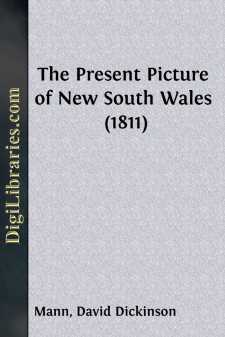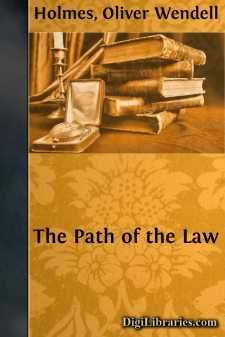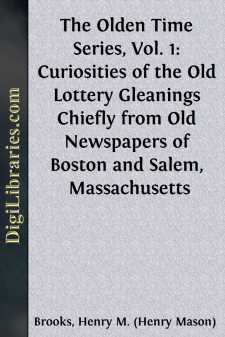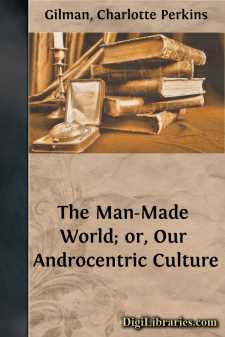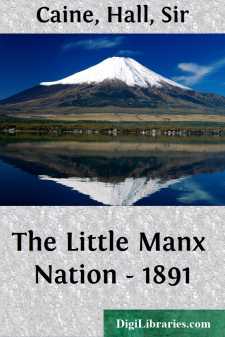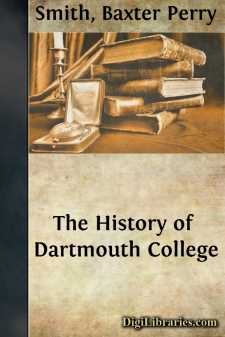History
- Africa 30
- Americas (North Central South West Indies) 50
- Ancient 68
- Asia 58
- Australia & New Zealand 8
- Canada 41
- Caribbean & West Indies 1
- Civilization 20
- Eastern Europe 12
- Europe 310
- Expeditions & Discoveries 60
- General
- Historical Geography 1
- Jewish 9
- Latin America 3
- Medieval 8
- Middle East 13
- Military 248
- Revolutionary 8
- Study & Teaching 5
- United States 353
- Western Europe 56
- World 13
General Books
Sort by:
Chapter I.Discovery of New South Wales.--Arrival of a Colony there from England.-- Obstructions calculated to retard the Progress of the Settlement.-- Departure of Governor Phillip.--Intervening Governors, until the Arrival of John Hunter, Esq. and his Assumption of the Government.-- Printing Press set up.--Cattle lost, and Discovery of their Progeny in a wild State.--Playhouse opened.--Houses...
more...
by:
Ellice Hopkins
CHAPTER I In a banquet given in honor of Heinrik Ibsen by a Norwegian society known as the Woman's League, in response to a speech thanking him in the name of the society for all he had done for the cause of women, the poet, while disclaiming the honor of having consciously worked for the woman's cause—indeed, not even being quite clear as to what the woman's cause really was, since in...
more...
10 HARVARD LAW REVIEW 457 (1897) When we study law we are not studying a mystery but a well-known profession. We are studying what we shall want in order to appear before judges, or to advise people in such a way as to keep them out of court. The reason why it is a profession, why people will pay lawyers to argue for them or to advise them, is that in societies like ours the command of the public force...
more...
INTRODUCTION. While this work does not pretend to be a history, it will yet present many historical facts. Its object is to show from old newspapers, which are not accessible to all, such items and comments upon a variety of subjects as might be supposed to amuse or instruct both old and young. It is not the easy thing that many imagine to examine, read, and select from a vast number of newspapers such...
more...
by:
Punahou School
THE OAHU COLLEGE. In the year 1841, a school was commenced, for the children of missionaries, at Punahou, near Honolulu, Sandwich Islands. Five year ago, it was opened to others besides the children of missionaries. The number of pupils has varied from thirty to sixty, and the whole number of pupils, up to September, 1854, was one hundred and twenty-two. In May, 1853, the Hawaiian Government...
more...
by:
Scott Nearing
I. THE NEW ECONOMIC LIFE 1. The Historic Present The knell of a dying order is tolling. Its keynote is despair. Gaunt hunger pulls at the bell-rope, while dazed humanity listens, bewildered and afraid. Uncertainty and a sense of futility have gripped the world. They are manifesting themselves in unrest, disillusionment, the abandonment of ideals, opportunism, and a tragic concentration on the life of...
more...
I. AS TO HUMANNESS. Let us begin, inoffensively, with sheep. The sheep is a beast with which we are all familiar, being much used in religious imagery; the common stock of painters; a staple article of diet; one of our main sources of clothing; and an everyday symbol of bashfulness and stupidity. In some grazing regions the sheep is an object of terror, destroying grass, bush and forest by omnipresent...
more...
by:
Hall Caine
THE STORY OF THE MANX KINGS There are just two ideas which are associated in the popular imagination with the first thought of the Isle of Man. The one is that Manxmen have three legs, and the other that Manx cats have no tails. But whatever the popular conception, or misconception, of Man and its people, I shall assume that what you ask from me is that simple knowledge of simple things which has come...
more...
CHAPTER I. THE BIRTH OF THE TELEPHONE In that somewhat distant year 1875, when the telegraph and the Atlantic cable were the most wonderful things in the world, a tall young professor of elocution was desperately busy in a noisy machine-shop that stood in one of the narrow streets of Boston, not far from Scollay Square. It was a very hot afternoon in June, but the young professor had forgotten the heat...
more...
INTRODUCTION. The most valuable part of a nation's history portrays its institutions of learning and religion. The alumni of a college which has moulded the intellectual and moral character of not a few of the illustrious living, or the more illustrious dead,—the oldest college in the valley of the Connecticut, and the only college in an ancient and honored State,—would neglect a most fitting...
more...


